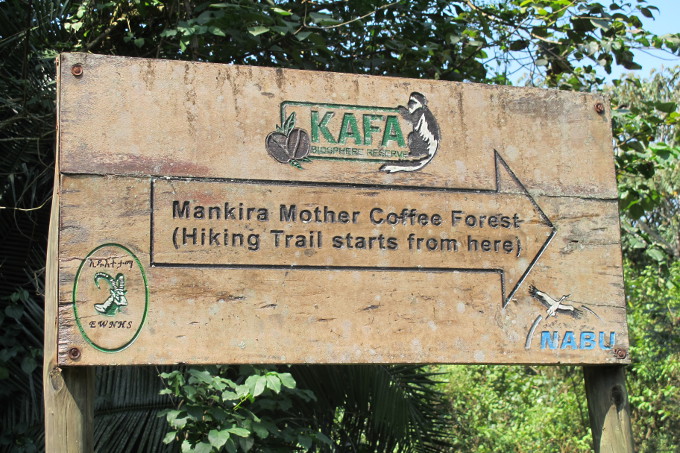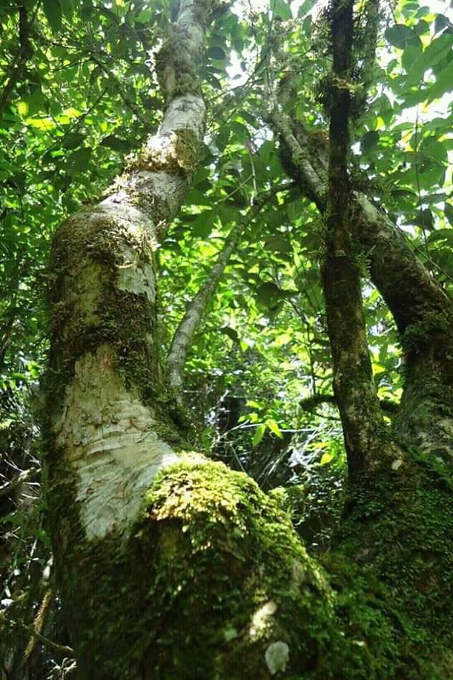The mother of all coffee trees
Declining variety of Ethiopia’s wild coffee

Signs will guide you to the famous Mankira forest - photo: Mieke Kuiters
25th April 2019 – Ethiopia is home to an almost unimaginable number of wild Arabica coffee (Coffea arabica) species. One tree in particular is praised by the local population as the origin of all Arabica coffee trees. The “Mother Coffee Tree”, as it is known, is about 6 meter high and 20 centimeter thick and can be found in the Mankira forest of the Kafa Biosphere Reserve. Whereas there is no scientific evidence that this tree is indeed the mother of all Arabica coffee trees, it is surely one of the oldest coffee trees on earth.
The Mankira forest reserves a special role, due to its location in the UNESCO recognized Kafa Biosphere Reserve and in a National Forest Priority Area. Its natural forest does not only comprise wild coffee trees, but is also home to many other plant and animal species.
Nowadays, Kafa is one of the last areas where Arabica coffee still grows wild. Around 5,000 different species have been evolved over hundreds of years in the region.
Nevertheless, the Mother Tree and her “offspring” face a great danger: climate change. Increasing temperatures and decreasing rainfall cause growing stress to the plant and increase the spread of diseases and pests. A study published in early 2019 shows that there is a rapid decline in the species’ variety and that 60% of all wild coffee species are threatened with extinction (Article: Davis, 2019).
NABU wants to preserve the (genetic) diversity of Coffea arabica and, more generally, the local biodiversity by taking the pressure off the coffee forests, meaning through reducing forest intrusion and destruction. NABU thereby follows different approaches. One of them is the promotion of agroforestry farming systems among local farmers and government partners, through trainings, continuous technical advice and the setting-up of model farms. Agroforestry is a farming system that combines a variety of trees, shrubs and crops in one plot.
This sustainable management system fosters crop diversification, increases soil fertility, reduces erosion and enhances crop yield. Whereas these activities aim at mitigating climate change, NABU likewise implements measures for a more immediate approach to climate change impacts. Based on the knowledge of the local communities, especially the elderly, NABU identified and reintroduced a number of almost forgotten crop species, which are not only high in nutrition but are also proven to be more resilient towards the effects of climate change.

